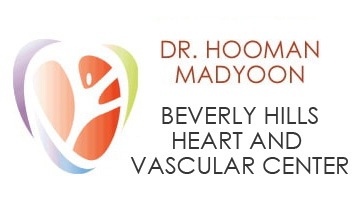Heart attacks can come in many shapes and forms, and it can sometimes be difficult to recognize the symptoms. When you are suffering from a heart attack, it is critical to get in touch with your cardiologist in Los Angeles right away. Some attacks can be fast, while others may happen more subtly. Either way, it is important to know the symptoms and signs of a heart attack.
Looking for the best cardiologist in Los Angeles? Our professionals at Beverly Hills Vein and Cardiovascular Institute specialize in heart health, and we want our patients to be as informed as possible about how to identify the signs of a heart attack. Since there is a wide range of symptoms, we wanted to highlight some of the most common ways to experience a heart attack. Consider these signs and symptoms so you can prevent serious heart attack risks. If you think you may need a cardiac stress test, reach out to Dr. Madyoon today.
1. Inexplicable Fatigue and Nausea
This may be a less common symptom than some of the bigger signs of a heart attack. According to the CDC, unusual tiredness or frequent vomiting can actually be a sign of a heart attack. This symptom is also more likely to happen in women than in men, especially those over the age of 45. This is a hidden symptom since most patients do not think of their heart when they experience nausea.
2. Chest Pain and Tightness
Some heart attacks cause pain, while others just cause discomfort. Any uncomfortable feelings in the chest can be a clear sign of a heart attack. If you feel a tightness, pressure, or pain in the center of your chest that lasts for more than a few minutes at a time, you should get in touch with your doctor ASAP.
3. Upper Body Tightness
Since heart attacks are caused by the blocking of blood flow to the heart, areas of the body that are near the heart are also likely to be affected. This includes areas of the upper body such as the arms, neck, back, jaw, and abdomen. Some patients report a tingling, squeezing, or constricting feeling.
4. Shortness of Breath
This symptom is often accompanied by a feeling of fatigue or light-headedness. As the heart struggles to receive the proper amount of blood (and therefore oxygen), it can be difficult to breathe temporarily. This can be a sure sign that you are experiencing a heart issue, and it is very important to get in touch with your cardiology specialist as quickly as you can. Although it may not seem like an emergency, your heart is letting you know that there is something wrong.
5. Cold Sweat
Your body goes into a panic state and tries to employ different defense mechanisms to regulate your blood, oxygen, and body temperature. Cold sweats are often a sign of illness, and in this case, it can be your body’s real way of telling you that you are suffering from a heart issue.
When to See Your Doctor
No matter what variation or severity of the above symptoms you’re experiencing, it is always recommended to act immediately. See your heart doctor as soon as you can. If you feel that you are in a life-threatening situation, dial 911.
At Beverly Hills Vein Center, our specialists may prescribe nitroglycerin or aspirin to alleviate your symptoms. Nitroglycerin can help your heart stem its symptoms while you wait for emergency medical services. However, do not take these medications without speaking with your doctor first. This is especially true if you already take other medicine.
Visit Beverly Hills Vein and Cardiovascular Institute ASAP
Dr. Hooman Madyoon and our team of specialized cardiologists want you to be the most prepared when looking for signs of a heart attack. From tightness in the chest to consistent nausea and light-headedness, there are a number of ways that your body could be telling you that something is wrong. Don’t delay this life-threatening condition. Get in touch with us online or call us at (310) 492-8858 to make an appointment.

